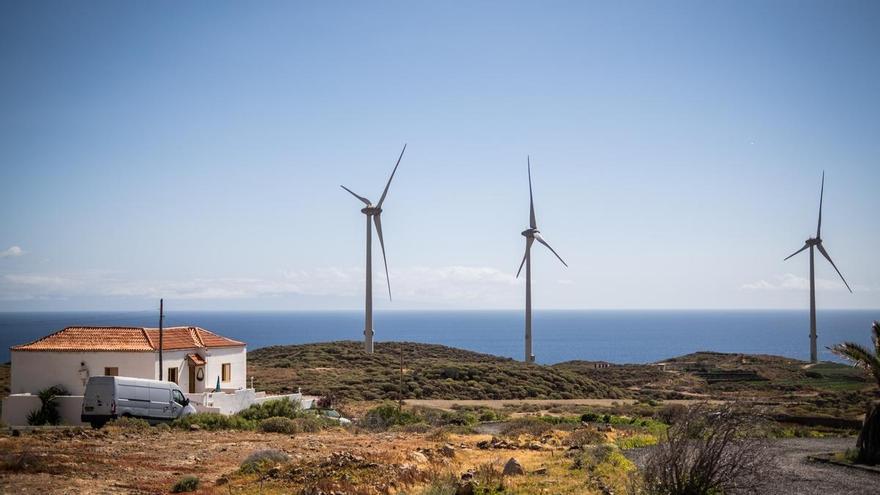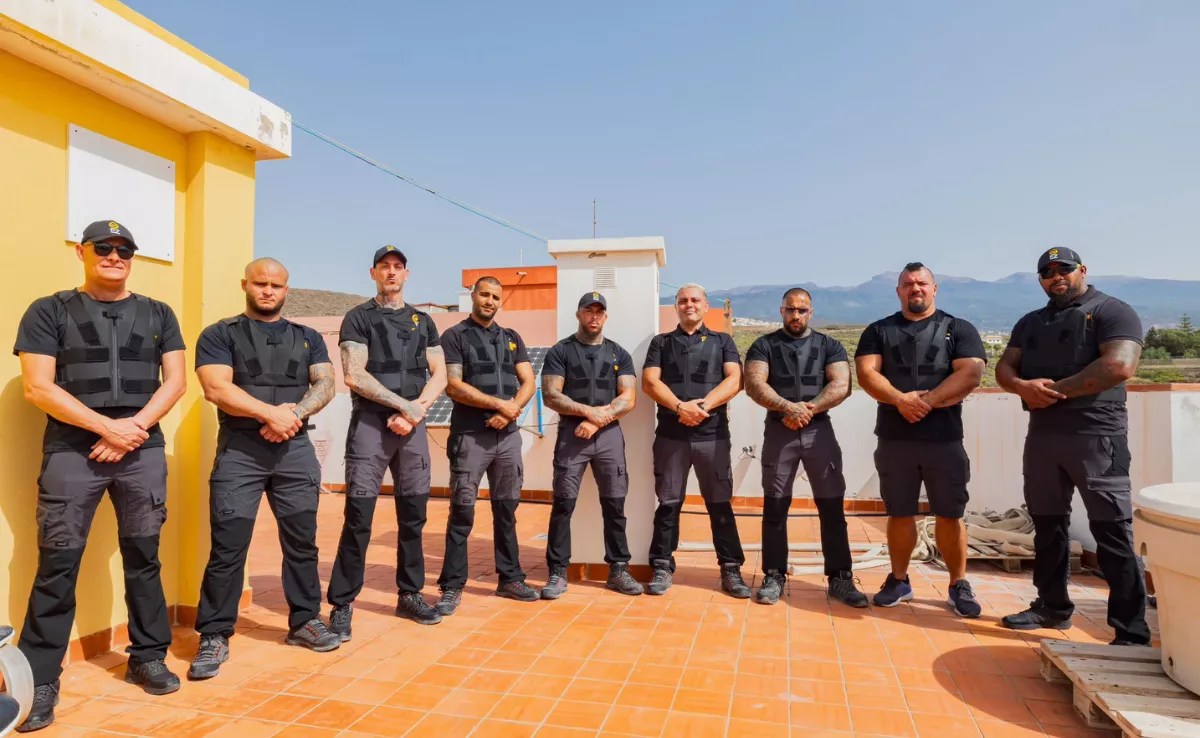
Justice once again agrees with the company Alas Capital in front of the Arico City Council. The Supreme Court (TS) obliges the Consistory of Ariquero to return 128,300 euros to the promoters of the La Morra wind farm as Tax on Construction, Installations and Works (ICIO). The ruling alludes to the fact that this facility has been authorized by the Government of the Canary Islands since January 2022, despite legal rulings to the contrary, and that the Constitutional Court (TC) declared the collection of the ICIO unconstitutional in a ruling last October, although not retroactively.
This ruling represents a substantial change in the relationship between the alternative energy production complexes and the Administration, to which the courts granted the reason for the collection of the ICIO, until now. This is what happened with the Cabildo de Tenerife and with the City Council. At present, the circumstance occurs that other claims by the company that reach the amount of 400,000 euros remain in court.
One aspect to which the Supreme Court ruling alludes refers to the fact that The Department of Ecological Transition of the Canarian Government authorized this wind farm located in the Jardín del Atlántico urbanization. A legalization that It was produced in the presence of judicial rulings such as that of the Superior Court of Justice of the Canary Islands (TSJC), which in 2018 annulled the process to build the La Morra wind farm by not having obtained the mandatory authorization from the Arico City Council.
three wind turbines
The Supreme Court now annuls that decision of the TSJC, which agreed with the City Council when it approved the liquidation of the ICIO due to a modification of the project that materialized, years ago, in the construction of three 6.3 megawatt wind turbines, of which eight initially planned. Each wind turbine is 78 meters high and has 92-meter blades. Located in the vicinity of an urbanization, Jardín del Atlántico, located down the highway, residents have expressed their complaints on multiple occasions in relation to the noise they produce and the flickering effect caused by the movement of their blades. The activity of one of these wind turbines has a special impact on one of the nearby houses.
The underlying issue debated in the courts was to determine whether the authorization granted by the autonomous government through the Law for the Regulation of the Electricity Sector replaces the authorization of works or urban planning that implies the payment of the ICIO. The City Council, the Cabildo and the Government of the Canary Islands argued that the company should pay this amount for the modification of the wind power installation.
The only one between the highway and the sea in Arico
The La Morra wind farm is the only alternative energy production complex built between the Autopista del Sur (TF-1) and the sea in Arico. It was authorized by the Ministry of Economy, Industry, Commerce and Knowledge of the Government of the Canary Islands on August 4, 2016, along with seven others that were installed in Arico itself (3) and in Agüimes (3). With a power of 6.3 megawatts (MW), it was built in the Salto del Roque area, in the vicinity of the Jardín del Atlántico urbanization and near the town of Las Listadas. Declared of public utility, it contemplated seven wind turbines and an investment close to 5.6 million euros. On March 16, 2017, the General Directorate of Industry and Energy of the regional Executive authorizes the company to modify the installation of the park, which increases its power generation to 7.05 megawatts and reduces the number of wind turbines to three. Municipal sources say they are unaware if its expansion is planned and clarify that the reports from the City Council have always been negative, although they have not been taken into account. Remember that La Morra’s license was declared null and void by the courts and that the Canarian government ignored the request to cease the activity until the sentence was fulfilled.
The project consisted of the adaptation of the park to the Island Plan by the Cabildo and the change of the evacuation line, among other aspects, for which the City Council had to modify the subsidiary regulations.
The collection of the tax reached the Constitutional Court (TC) in 2021, after it was requested by the construction company Atlas Capital and accepted by the Public Prosecutor, in order to determine the possible unconstitutionality of the Law for the Regulation of the Canarian Electricity Sector. The TC ruled in October 2022 annulling a section of the law that until now allowed municipalities to collect the tax on energy projects that have a special authorization from the autonomous Executive for reasons of urgency or exceptional interest. The Constitutional Court determined that this regional regulation, approved in 2011, invades the exclusive powers of the State in matters of municipal taxes.
The Department of Economy and Finance of the Arico City Council approved the liquidation of this tax on the La Morra wind farm in 2018. The developer company paid the required amount and another 400,000 euros, says Efe, but immediately began a legal process.
Along the way, he has found that a decree signed on January 27 of last year by the President of the Canary Islands Government, Ángel Víctor Torres, and by the Ecological Transition Minister, José Antonio Valbuena, legitimizes the execution of the modified wind farm project La Morra and orders the Cabildo de Tenerife and the Arico City Council to do what is necessary to incorporate it into their urban planning determinations.















